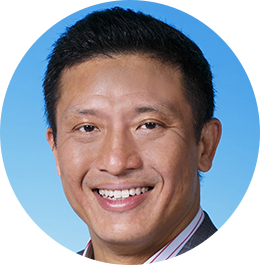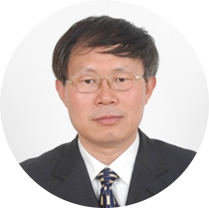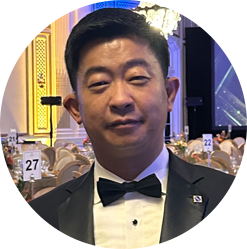Keynote Speakers of ICCSN2026

Prof. C. Patrick Yue
IEEE Fellow, OSA Fellow
Hong Kong University of Science and Technology, China
Biography: C. Patrick Yue (S’93–M’98–SM’05–F’15) received the B.S. degree in Electronic and Computer Engineering (Highest Hons.) from the University of Texas at Austin in 1992, and the M.S. and Ph.D. degrees in Electrical Engineering from Stanford University in 1994 and 1998, respectively.
Based on his Ph.D. thesis work, he co-founded Atheros Communications in 1998 and contributed to the development and deployment of the world's first IEEE802.11a CMOS Wi-Fi transceiver system-on-chip (SoC). In 2002, he joined Aeluros to work on CMOS high-speed PHY/SerDes IC design and signal integrity issues in chip packaging. Between 2001 and 2003, while working at the start-ups, he served as a Consulting Assistant Professor at Stanford in the EE Department focusing on research in the area of high-frequency CMOS IC design and RF device modeling. In 2003, he joined Carnegie Mellon University in Pittsburgh, PA as an Assistant Professor in the Department of Electrical and Computer Engineering. In 2006, he moved to the University of California, Santa Barbara and was promoted to full professor in 2010. Since 2011, he has been a Professor at the Hong Kong University of Science and Technology (HKUST) in the Department of Electronic and Computer Engineering. From 2014 to 2015, he served as the first Associate Provost for Knowledge Transfer at HKUST. In 2016, he took a sabbatical leave from HKUST to Tsinghua University, Beijing, PRC as a Visiting Chair Professor in the Institute of Microelectronics. In 2017, he founded LiPHY Communications to commercialize visible light communication (VLC) technology for smart building and IoT market. Currently, he is the Director of the HKUST Integrated Circuit Design Center (ICDC), the Optical Wireless Lab (OWL), and the HKUST-Qualcomm Joint Innovation and Research Lab. His research interest includes optical wireless physical layer circuits and systems, high-speed wireline communication SoC, millimeter-wave communication and sensing circuits, indoor positioning and image processing technologies for robotic applications, and edge computing accelerator design for IoT applications.
Prof. Yue has contributed to more than 200 peer-reviewed articles, 20 granted patents, and 2 book chapters. He was awarded the eleventh Guanghua Engineering Science and Technology Youth Award by the Chinese Academy of Engineering (CAE) in 2016. He and his students received the IEEE International Solid-State Circuits Conference (ISSCC) Best Student Paper Award in 2003, the IEEE International Wireless Symposium (IWS) Best Student Paper Award in 2016, and the IEEE Circuits and Systems Society Outstanding Young Author Award in 2017. He has served on the technical program committees of the ISSCC, the IEEE Symposium on VLSI Circuits (VLSI-Circuits), the IEEE RFIC Symposium (RFIC), the IEEE European Solid-State Circuits Conference (ESSCIRC), the IEEE IWS, and the IEEE Asian Solid-State Circuits Conference (A-SSCC). He was an Editor for IEEE Electron Device Letters and IEEE Solid-State Circuits Magazine, and a Guest Editor for the IEEE Transactions on Microwave Theory and Techniques. Since 2018, he has been an Editor of the Proceedings of the IEEE. He was an Elected AdCom Member from 2015 to 2017 for the IEEE Solid-State Circuit Society (SSCS) and was a SSCS Distinguished Lecturer between 2017 and 2018. He served as the Vice-President of Membership of the IEEE SSCS between 2016 to 2021. Prof. Yue is a Member of ACM and a Fellow of IEEE and OSA.
More speakers will be announced soon.....
Keynote Speakers of ICCSN2025 |
|||
 |
 |
 |
 |
| Prof. T. Aaron Gulliver |
Prof. Nian Fushun |
Prof. Zhu Han |
Prof. Hao Zhang |
| Speech Title: Physical Layer Authentication for Wireless Applications | Speech Title: Development of Electronic Measurement Technology | Speech Title: The Transformative Impact of Generative AI: Strategies, Applications, and Innovations | Speech Title: Key Technologies and Large scale Promotion of Marine Applications of Beidou Satellite Navigation System |